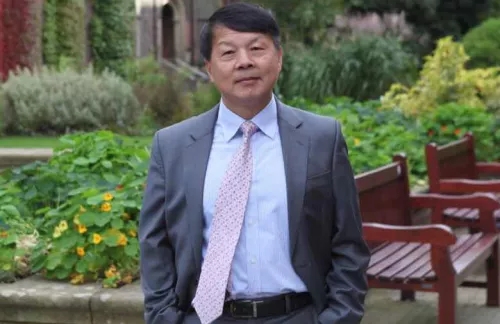Zhou Xiaoming: Beijing’s rare earth export control is blowback from US policy
October 25 , 2025
By Zhou Xiaoming | Senior fellow at the Center for China and Globalization(CCG), Former Deputy Permanent Representative of China’s Mission to the UN Office in Geneva.
The US shouldn’t be shocked by China’s use of export restrictions. The White House gave Beijing the blueprint and the rationale to use them
On September 12, just two days before US-China trade talks in Madrid, Spain, the US blacklisted 23 Chinese institutions.
On September 25, less than a week after the phone call between Trump and President Xi Jinping, the White House announced plans to impose tariffs on kitchen cabinets, bathroom vanities and upholstered furniture, a move expected to hurt China, which exports these goods to the US.
On September 29, the Trump administration extended export controls to subsidiaries that are at least 50 per cent owned by companies on the US Entity List or Military End-User List. In one go, the US placed potentially tens of thousands of companies under American export controls.
On October 3, the US detailed its plans for a port fee on Chinese-listed vessels it had announced earlier this year, which were rolled out a week later. Then, on October 8, the US added 16 more Chinese firms to its entity list.
The US Treasury Department announced what it called the fourth round of sanctions on Chinese refineries that buy oil from Iran. Not to be outdone, the US Transportation Department announced efforts to ban Chinese airlines on US routes from flying over Russian airspace.
This pattern of behaviour is not new, however. Soon after both countries wrapped up trade talks in Geneva, Switzerland in May, for example, the US restricted sales of chip design software, sending letters telling prominent firms to stop supplying technology to China. Is Washington using talks to buy time for new provocations?
Meanwhile, Trump described the release of Beijing’s rules as “a real surprise”. Perhaps he is used to beating others without being hit back.
Undoubtedly, Beijing’s announced measures significantly widen the reach of its rare earth export curbs. They include associated refining technologies but also require non-Chinese companies exporting goods that contain rare earth materials from China to obtain an export licence.
Yet, the measures simply mirror what the US has been doing to China. To “maintain as large of a lead as possible”, the US has introduced export controls in recent years to restrict China’s access to high-performance semiconductors and chipmaking equipment, as well as its ability to produce them. Furthermore, chips or equipment made overseas using US-made technology or tools are also subject to US export controls.
As the Financial Times put it, Beijing’s export control regime “amounts to a Chinese version of the extraterritorial ‘foreign direct product rule’ that Washington has used to require companies from third countries to obtain licences to export chips with US content to China”.
Many in China are asking how the US could consider its long-arm jurisdiction as legitimate but China’s retaliation as hostile. Are export controls Uncle Sam’s to use alone?
For its part, China has been reluctant to engage in a trade war. It did not fire the first shots and has exercised restraint to avert escalation. Often, it chooses verbal fights over real retaliation. However, Beijing has recently shown more readiness to hit back at Washington. China has launched anti-dumping and anti-discrimination probes, put US firms on its own unreliable entity list and announced plans to charge port fees on American vessels. Some of these actions were taken a day after escalations from the US.
So, if Trump follows through on his tariffs, history will repeat itself. His threat only sent the US stock market tumbling.
Anyone who expects Beijing to back down on its new control regime will be sorely disappointed. As a national security issue, China’s export control on rare earths is no less non-negotiable than the US’ export curbs on advanced semiconductors and artificial intelligence.
A deal to reduce US tariffs in exchange for rescinded Chinese controls would amount to exchanging a coin for a diamond. So the only way out is for Washington to slash its export controls on AI chips in exchange for Beijing’s easing of rare earth export restrictions.
Meanwhile, Europe is starting to feel the pinch of Beijing’s export controls. The West created the export control regime and has used it for seven decades while China has been on the receiving end since the 1950s. Now that the European Union is being affected, it is perhaps becoming a bit more appreciative. Confucius’ golden rule rings true: “Do not do unto others what you would not want others to do unto you.” Creating trouble for others creates trouble for oneself.
Despite Beijing’s assurance to expedite its export licence approvals, it is unrealistic to expect rare earths exports to flow as freely as they used to. Meanwhile, if Brussels genuinely cares about business and consumers in the bloc, it could not do better than to shrink or remove its own export controls on China.
Washington portrays Beijing’s move as one that challenges the entire world. For all intents and purposes, it is directed at the US. In fact, Beijing is committed to maintaining the stability of global supply chains. If Brussels chooses to align with Washington in retaliating against China, it could find itself on the opposite side of Beijing, potentially doing more harm than good to the European Union.
From SCMP, 2025-10-24
Topical News See more






